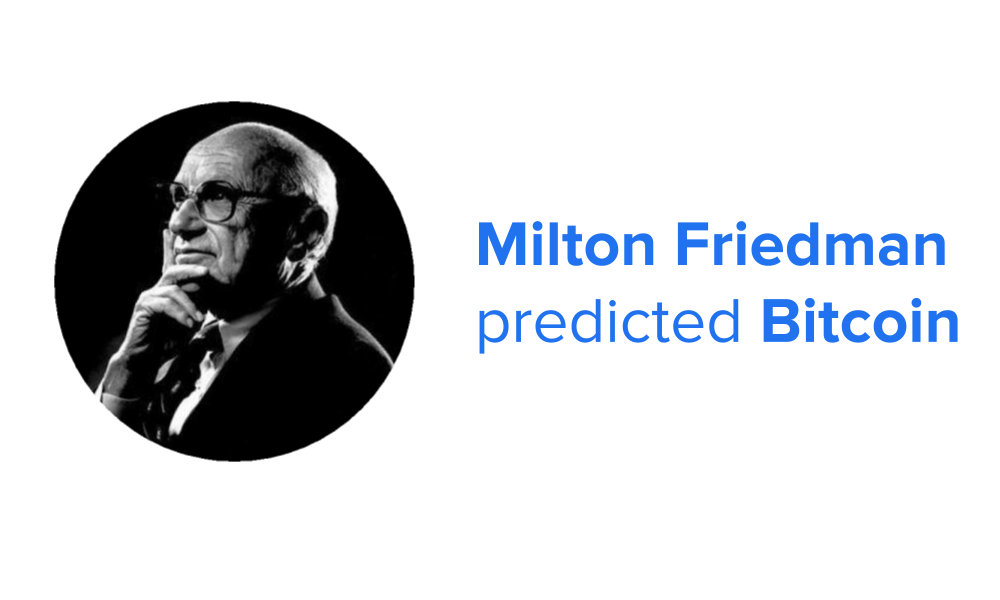Milton Friedman is a well renowned economist. He who was awarded a Nobel Prize for his impactful research and contributions to the field. He is one of the most prominent economists and statisticians of our time, well versed in consumer behaviour and monetary policies.

At the peak of his career in 1976, he won the Nobel Memorial Prize in Economic Science. He had his fair share of critics that at the time perceived his liberal worldly views in a negative light. However all of his theories such as the globalisation theory and others are holding true today.
The prediction
One of Milton’s most noteworthy predictions is his prediction on the invention of Bitcoin in 1999. He believed in the true potential of the internet and the opportunities it would bring to the future generations. He experienced the true wonders of Web 1.0.
The rise of the internet and decentralisation
Seeing the rise of the internet, he predicted the need for electronic cash that would connect the world seamlessly. A currency that would mitigate the need for other national currencies. This would help in facilitating financial independence without relying on governments and central banks for making payments. Even the rise of e-commerce and other services being provided for on the internet would require digital cash for a seamless experience.
He described this concept as a “decentralized currency” that we call cryptocurrency today. He went on to describe the concept as “Transfer funds from A to B without A knowing B or B knowing A”. Friedman truly believed that this kind of change in monetary policy and the economy as a whole is inevitable. This would enable a more free world, one where we didn’t have to rely on government’s for determining the value of a dollar. And one where we did not have to trust financial institutions nor inform them of the purpose and minute details of our transactions.
Closing Thoughts
Milton Friedman, one of the world’s greatest economists, unfortunately did not see his prediction come to life. He died a natural death in 2006, missing the birth of Bitcoin just a few years later in January of 2009. He has always been futuristic in his views and theories, and today his prediction is holding strong. Decentralisation and cryptocurrencies are the building blocks of a brighter future for the coming generations.

